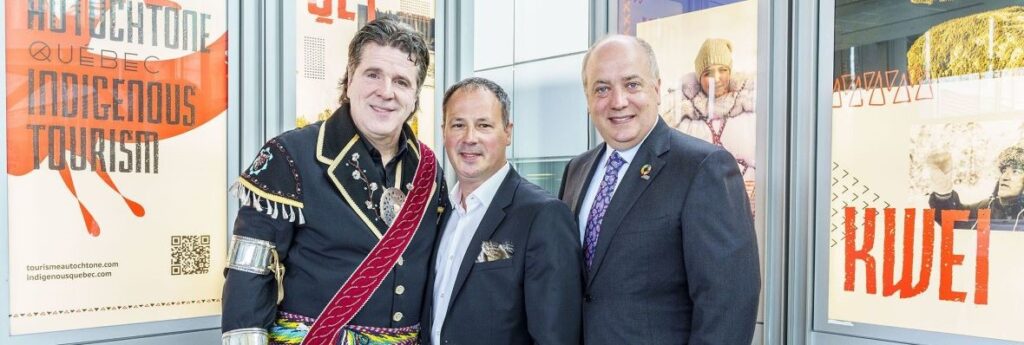ADM Aéroports de Montréal and Indigenous Tourism Québec (ITQ) have unveiled the first space showcasing Québec’s 11 Indigenous Nations at YUL Montréal-Trudeau International Airport. The initiative is the result of a mutual agreement to promote the cultures and tourism offerings of Québec’s 11 Indigenous Nations at strategic locations throughout the terminal.
The aim of the three-year agreement is part of ADM Aéroports de Montréal’s commitment to develop an Indigenous engagement strategy that will enable it to establish lasting relationships with the First Peoples of Québec.
The space features about 20 backlit posters that present, in images and words, the Nations that make up Québec’s Indigenous Nations. Installed in the public areas of the terminal, it will be on display until the end of October. Future installations will include authentic Indigenous tourism experiences, art and cultural objects.
“YUL Montréal-Trudeau, which handles more than 21 million passengers, is an ideal place to showcase the cultural diversity of Québec’s Indigenous peoples,” says Martin Massé, VP, Public Affairs, Communications and Sustainability at ADM Aéroports de Montréal. “At YUL, we also count on a number of airlines serving Indigenous communities, with whom we hope to continue consolidating and strengthening our partnerships (and) allow us to meet a growing demand from travellers and offer them an authentic immersive experience.”
For ITQ, this partnership represents an opportunity to strengthen the development of Indigenous tourism in Québec by offering a unique showcase to a wide range of travellers and complements the recently developed Indigenous Zone at the Palais des congrès and the hosting of the International Indigenous Tourism Conference in February 2025 in Montreal.
“I welcome ADM’s openness, which will allow us to work together on great projects that will meet the expectations of foreign tourists and serve as a tool to bring people together, thus contributing to the growth and prosperity of Indigenous tourism,” said ITQ President Steeve Wadohandik Gros-Louis.

